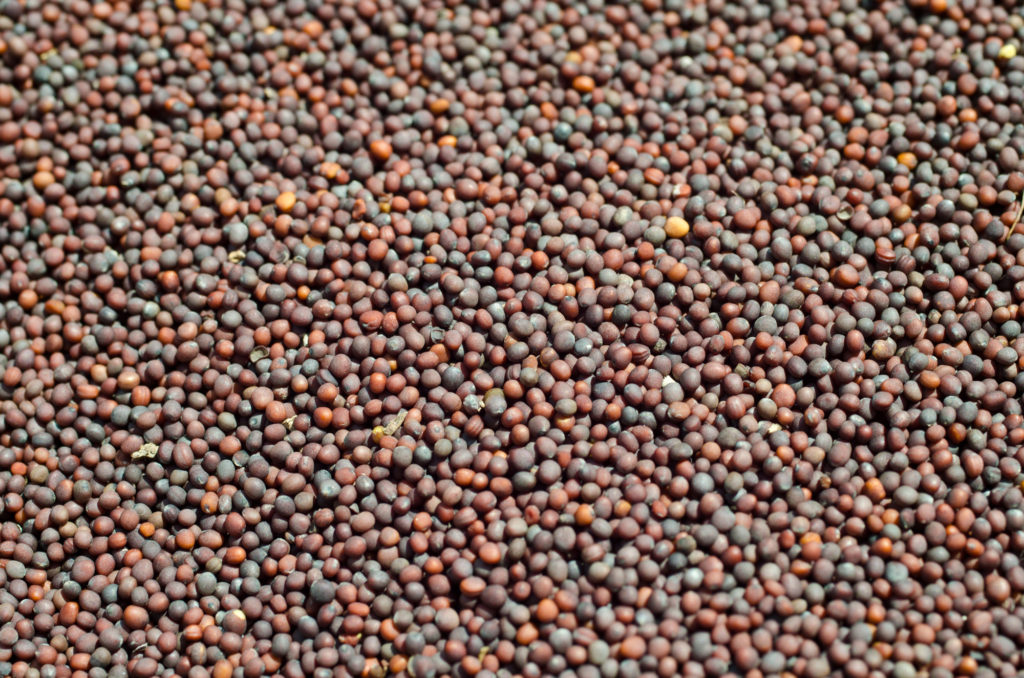Introduction:
Mustard seeds (Brassica napus) are also famous as rai or sarson ke beej in India. All parts of the mustard plant (leaves, flowers, and seeds) are edible and possess numerous essential nutrients. These seeds are globally the third most common source of vegetable oil, after soya bean and palm oil.
A 20-gram portion of mustard seeds contains:
- Calories: 101.6 calories
- Fiber: 2.44 grams
- Protein: 5.22 grams
- Fat: 7.24 grams
- Vitamin C: 1.42 milligrams
- Vitamin K: 1.08 micrograms
- Thiamin: 0.16 milligrams
- Riboflavin: 0.05 milligrams
- Niacin: 0.95 milligrams
- Folate: 32.4 micrograms
- Calcium: 53.2 milligrams
- Iron: 1.84 milligrams
- Zinc: 1.22 milligrams
- Copper: 0.13 milligrams
- Magnesium: 74 milligrams
- Phosphorus: 165.6 milligrams
- Potassium: 147.6 milligrams
- Sodium: 2.6 milligrams
- Manganese: 0.49 milligrams
- Selenium: 41.6 micrograms
Health benefits:
These tiny seeds are rich in numerous essential minerals, which have the following health benefits:
- Each part of the mustard plant is rich in various nutrients. But the mustard’s leaves and seeds contain copious amounts of vitamins A, C, and K, which are crucial for fighting chronic diseases, better vision and eye health, and blood clotting mechanisms.
- Mustard seeds are rich in fibers, selenium, manganese, and magnesium, which boost our immunity, maintain various bodily mechanisms and are crucial for bone health.
- Mustard seeds contain numerous glucosinolates-derived antioxidants, including isothiocyanates and sinigrin. Apart from these, mustard seeds are also rich in isorhamnetin, kaempferol, and carotenoids. All these antioxidants help protect our body against oxidative damage, several infections, and chronic diseases. They also possess antibacterial, antifungal, anti-inflammatory, and anti-cancer properties.
- Regular consumption of a mustard seeds-rich diet reduces inflammation and activates the healing process in psoriasis-caused lesions and contact dermatitis.
- Mustard green extract benefits people with diabetes by lowering blood sugar levels.
Generally, mustard seeds are safe for eating, but some people encounter problems when consuming a large amount or applying their paste directly to the skin.
Conclusion:
Mustard seeds are extensively used in Indian cuisine. Mustard seeds are rich in antioxidants help protect our body against oxidative damage, several infections, and chronic diseases. They also possess antibacterial, anti-fungal, anti-inflammatory, and anti-cancer properties.
